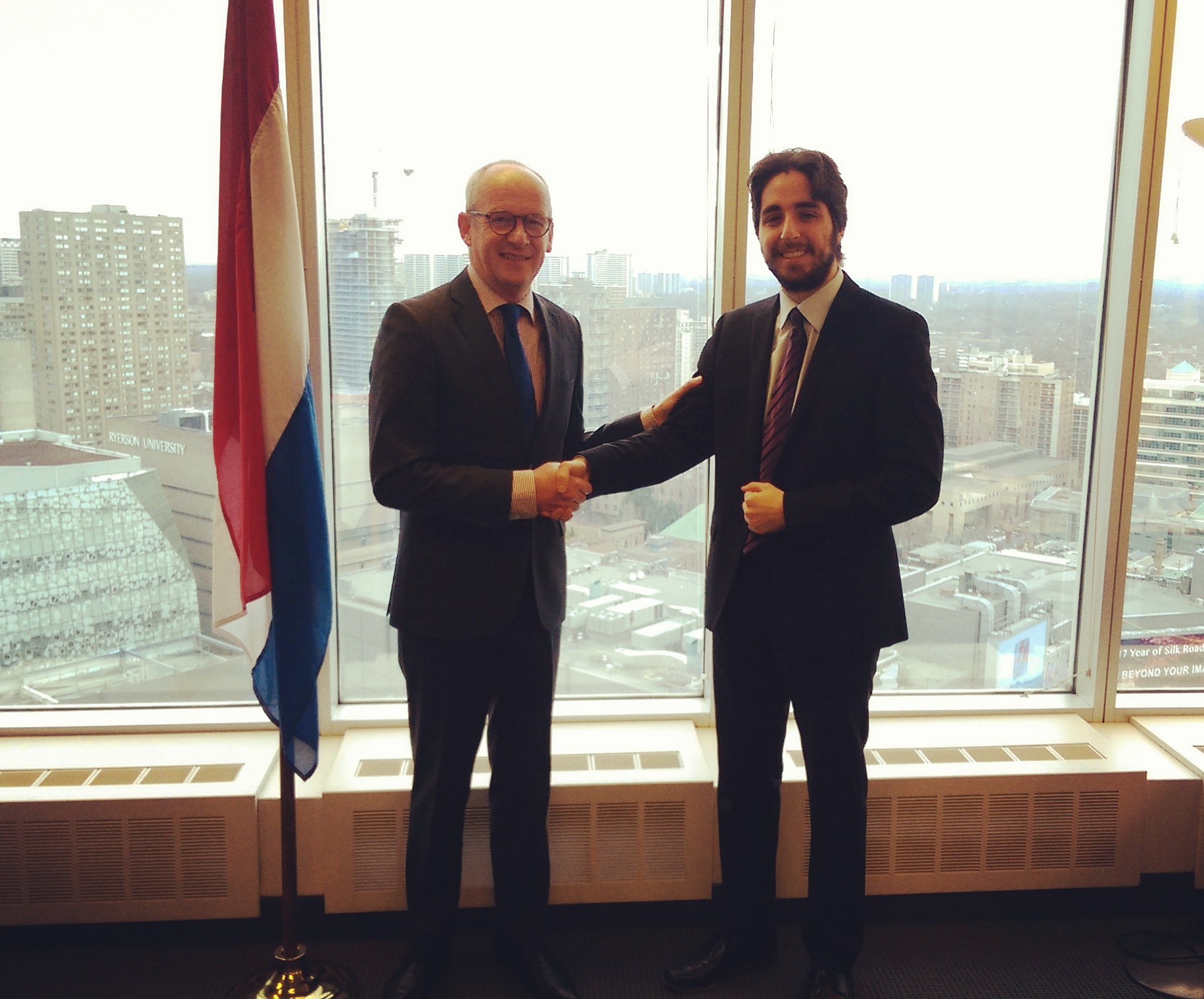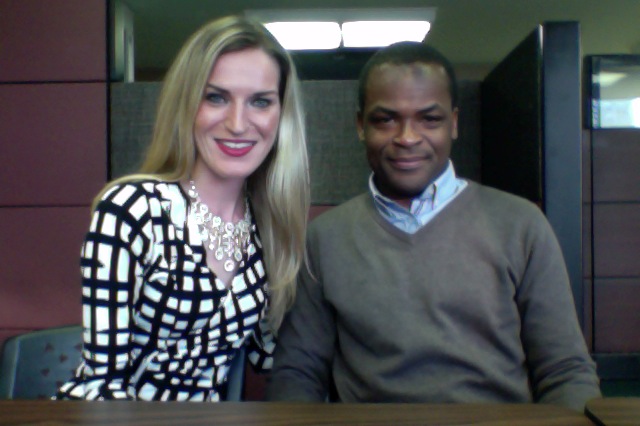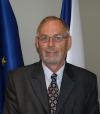Michele Di Leo and Magdalena Surma had the great honour of interviewing Mr. Anne van Leeuwen. From 1999-2002, Mr. van Leeuwen served as Press and Public Diplomacy Officer at the Netherlands Embassy in Jakarta, Indonesia. Following this posting, he worked from 2002-2006 at the Netherlands Embassy in Ottawa as Cultural Attaché before taking positions as Deputy Director of the Facility Services and Housing Division at the Ministry of Foreign Affairs (2006-2009) and as Head of the Consular Affairs Division at the Ministry (2009-2013). In 2013, he was appointed as Consul General of the Kingdom of the Netherlands in Toronto.
What are some critical foreign policy issues that the Netherlands is currently focusing on?
Without any doubt, one of the most important and complex current issues is a global and European one: the refugee crisis. During the last couple of years, we have seen a massive influx of people fleeing from immense tragedies, particularly from Syria. It is completely understandable that people are leaving places that are too dangerous. If you see images of Aleppo, nobody would dispute the right to leave that tragedy. There is of course immense pressure on the European Union, so we are trying to deal with that.
Are you worried about the unity of Europe, especially since it seems to be increasingly politically fragmented?
The history of the European Union is one of trying to take next steps and meeting difficulties, and one of the strong features of the EU is that we never waste a good crisis. We always come out of it stronger. If you look for instance at the Euro crisis, we found a way of getting out of that better, stronger and more resilient. I can understand the political development in the Netherlands and the EU and the pressures that we see and hear, but I am also confident in the resiliency of the Union and that good common sense will finally prevail.
What are some measures that are being undertaken to address the economic difficulties and refugee crisis, while also ensuring that citizens remain aware of the positive capabilities of the EU?
It is partly a Dutch success story and of our current Prime Minister. While the Netherlands held the Presidency of the EU in the first half of 2016, the deal with Turkey was successfully negotiated. Also, the number of refugees entering the countries has decreased. The Netherlands is one of the founding fathers of the EU so we are truly European. We are very internationally-minded, otherwise we would not exist. We have always played a major role in the EU.
Can you talk about the Netherlands international engagement, particularly with its NATO allies including Canada?
We do have a strong history of working with NATO and also a rich history of cooperation with Canada as one of the NATO member states. In Afghanistan, the Dutch and Canadian forces had very strong cooperation. Presently our armed forces are quite substantially involved in the UN operation MINUSMA in Mali and also in operations in countries like Somalia and South Sudan and in Iraq and Afghanistan. We have always been quite active in sending our men and women in uniform abroad to help both our NATO allies and international allies and to take our international responsibility.
I read something that struck me as somewhat uniquely Dutch and it had to do with renewable-energy transportation in the Netherlands. Would it be fair to say that environmentalism is an important Dutch ideal?
Yes, and actually in 2015 we organized an event here in Toronto called the Dutch-Canadian Summit on Resiliency in Climate Change, where we brought together Dutch and Canadian experts to share visions and solutions regarding this enormously important issue of climate change. The artwork that you see here in my room was exhibited at that seminar. It is the work of a Dutch photographer who travelled all over the world and took stunning pictures that document the rise of the seas due to climate change. We are very much aware of the enormous impact of climate change because half of our country is below sea level. We must deal with mitigating the effects of climate change and trying to adapt to it. I believe that we should begin by transitioning to a post-fossil fuel economy. As I travel, I see how innovative and creative the Dutch are and we definitely can and do make a valuable contribution in his field. My office will remain focusing on this issue.
Would you like to leave any final words for our Canadian readers?
I can only congratulate Canadians for the country that they have. You have a beautiful country because you build it and work on it every day. Canada is a country that is built on successfully welcoming people from all over the world. It’s an example of how well an open society can work. Just look at Toronto’s growth and multicultural success! There is no city in the world that has a higher percentage of inhabitants not born in the country where they now live. Keep on building on these important Canadian qualities!
Disclaimer: Any views or opinions expressed in articles are solely those of the authors and do not necessarily represent the views of the NATO Association of Canada.




